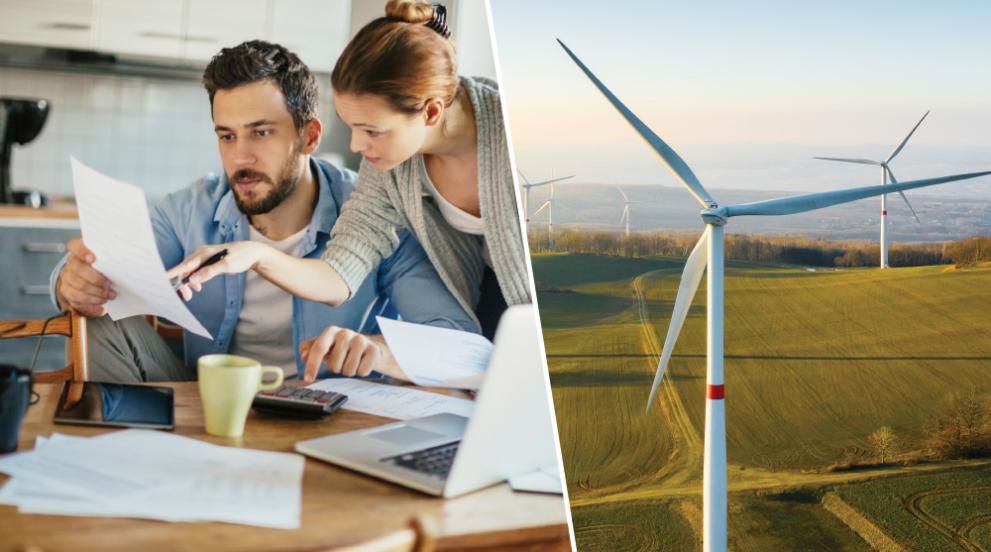
Around 10.6% of Europeans were unable to keep their homes adequately warm in 2023. This is up by 1.3% compared to 2022, a rise which underlines the impact of the cost of living crisis, including higher energy bills, on consumers.
In recent years, EU countries have sought to support those suffering from energy poverty through emergency measures, such as support schemes, energy vouchers and heating allowances. While providing important relief to the worst-affected consumers, these immediate intervention measures were not designed to address the underlying root causes of energy poverty.
For that to happen, long-lasting structural solutions to protect and empower consumers are needed. This is precisely what the European Commission had aimed at in reviewing a big part of its European Green Deal legislation
- the revised Energy Efficiency and Energy Performance of Buildings directives set ambitious objectives to target the most vulnerable households facing energy poverty
- new rules were recently adopted regarding Electricity Market Design, as well as decarbonised gases and hydrogen, which will improve consumers' rights and protections concerning their electricity and gas supply and empower them to take part in and benefit from the clean energy transition
New rights and stronger protections
The reform of the EU’s electricity market design, will make the energy bills of EU citizens and companies more independent from the short-term market price of electricity, often driven by high and volatile fossil fuel prices.
While legal protection for consumers is undeniably important, empowered and informed consumers are better equipped to manage their individual energy consumption and bills.
The new rules will give consumers the right to choose from a variety of contracts with the possibility to have, in parallel, multiple types of electricity contracts to best suit their various energy needs. It means, for instance, that a consumer could have a ‘fixed-price contract’, ensuring predictable costs for their main household energy needs, while also having a ‘dynamic price contract’ to charge their heat pump or electric car at whatever time of the day or night electricity is cheapest. At the same time, EU countries will have to better protect, by all available means, vulnerable and energy poor customers from electricity or gas disconnection.
'Stable prices and clean energy are key for our citizens to live a better life and for our businesses to prosper in Europe while competing fairly on the global market. Under this updated framework, European households and businesses will benefit from more security, affordability and transparency on the European energy markets. This is good for the clean energy transition and this is good for the economy.'
Maroš Šefčovič, Executive Vice-President for European Green Deal, Interinstitutional Relations and Foresight
In parallel, consumer rights and protection are also being strengthened in the gas market to ensure that consumers enjoy a consistent, safe and user-friendly experience with both their gas and electricity suppliers.
Energy sharing and communities
By 2050, around half of EU households (roughly 113 million) may have the potential to produce energy, according to a study by CE Delft.
Citizens – in their role as consumers – are and should remain a driving force of Europe’s clean and just energy transition. For this reason, the Commission is actively supporting the empowerment of citizens and communities towards achieving Europe’s energy and climate targets.
Energy sharing offers a novel approach to the energy transition. It allows citizens, communities, small and medium-sized enterprises and public bodies to self-consume off-site generated electricity based on peer-to-peer or collective energy sharing arrangements. By sharing electricity directly between each other, consumers can better position themselves against price fluctuations in the energy market, making them more resilient to price shocks.
Within this context, energy communities organise citizens and local actors within a single legal entity – often a cooperative – for the development of sustainable energy projects such as building renovations, district heating and cooling or renewable gas and electricity production. Such energy communities can deliver significant benefits to the community including reduced energy costs and green jobs.
As part of the REPowerEU Plan, it put forward the shared political objective of achieving 1 energy community per municipality with a population of more than 10,000 by 2025, backed by a strengthened legal framework and a range of initiatives to support the development of energy communities across the EU. In addition, the recent Electricity Market Design reform has defined, enabled, and widened the right to energy sharing to active customers.
The Commission’s Community Research and Development Information Service (CORDIS) is the primary source presenting the results of projects funded by the EU's framework programmes for research and innovation. It recently published a results pack on an inclusive energy transition and on local clean energy transition, highlighting EU-funded projects supporting citizens and communities to take a lead on the energy transition.
Citizens' Energy Forum
To give a voice to the citizens’ perspective and role in building a cleaner, affordable and more secure energy system, the Commission organises the Citizens’ Energy Forum each year. It brings together a wide range of local stakeholders, including citizens, citizens’ interest groups, NGOs, cities, communities, and businesses, as well as national policy makers to showcase good practices and exchange on experiences and issues to help better protect and empower citizens.
The next forum takes place on 5 December 2024 in Budapest, Hungary and online via a live web stream. It will focus on how to effectively empower citizens to ensure the delivery of a just energy transition.
Related links
Details
- Publication date
- 18 June 2024
- Author
- Directorate-General for Energy

